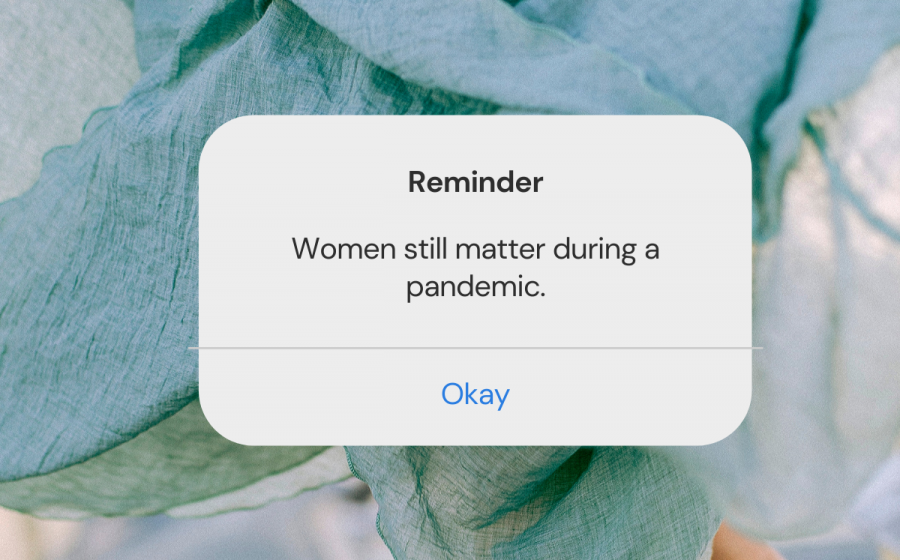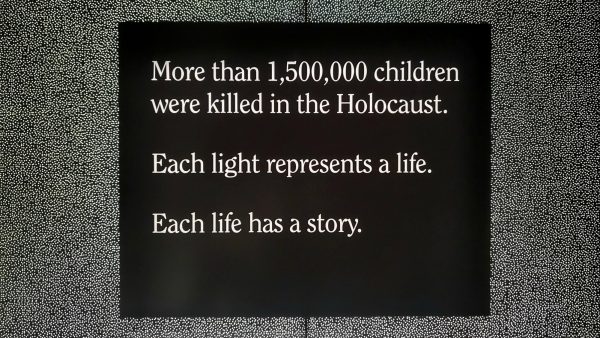Honoring women every day, not just in one month
Women during a pandemic still matter, as they are our teachers, our mothers, our sisters, and our mentors.
“We teach girls to shrink themselves to make themselves smaller. We say to girls, ‘You can have ambition, but not too much. You should aim to be successful, but not too successful. Otherwise you will threaten the man.’”
Chimamanda Ngozi Adichie
Each year in March we celebrate Women’s History Month. But is this enough?
As March marks the honoring of women, it is vital to teach this next generation of girls what it means to be a “strong woman.” Women from NASA Mathematician Katherine Goble, to German Chancellor Angela Merkel, to young activist Greta Thunberg, have proven that when young girls study the life of influential women, they are inspired to see themselves similarly to women who carry the world on their shoulders. Thus, it is no surprise that when they succeed, it is because strong female leadership often leads to stronger young women. Genius is beyond gender. Genius is beyond skin color.
First, it is important to acknowledge that women are treated as inferior in society. Women are unmistakably deprived of social equalities that are explicitly gifted to their male counterparts. Not to belittle the diligent work of men that has proven success, but women, in particular women of color, have had to work twice as hard to survive a system that continues to stack the cards against them.
Women have been fighting for equality for centuries. This isn’t a new fad that has blossomed because of a recent acceptance of “#girlboss,” despite the seemingly unnecessary label for an occupation. Nonetheless, I am amazed at the progress that has been made in the 100 years since the 19th Amendment institutionalizing women’s suffrage. I am grateful to live in a society where women are no longer looked upon as if love and beauty are all they are fit for; where marriage was forced to be an “economic proposition.” Yet there is still much social progress to be made.
Now then, the question remains: “What does equality look like for girls and women?”
In a perfect world, equality looks like equal pay, when the person chosen for the job is the most suitable person for the job. This is not about sexism. It’s about simple respect for the best person who has earned that position.
Equality looks like universal federal paid maternity leave. According to the Family and Medical Leave Act, since 1993, most new parents can take unpaid leave for up to 12 weeks without the threat of losing their job. Currently, in the United States, there are zero states with paid maternal leave and five states with paid paternity leave. This is not enough. Equality is when teachers who are women with young babies and new mothers are receiving their ADAs, and aren’t being pushed back to work, despite being vulnerable.
Equality looks like the extinction of double standards, for both men and women. These ‘double standards’ are no longer standards, but high school clichés that have no place in adult life.
Equality looks like women uplifting other women. “Each time a woman stands up for herself, without knowing it possibly, without claiming it, she stands up for all women,” American poet Maya Angelou once said. Progress for one woman is progress for all women, across the globe. Celebrate each others’ successes, and reach out to encourage fellow females, especially in third world countries. White, black, brown or yellow, there is no need to tear each other down. Equality is when Black women matter just as much as white women do.
Equality is when the word “feminism” is destigmatized and is no longer an uncomfortable word. Some refuse to acknowledge that feminism is not a one way street; it helps men too. Justice Ruth Bader Ginsburg, when she was an American Civil Liberties Union (ACLU) lawyer took on cases that fought against gender discrimination and “…often chose male clients because their claims were claims that were traditionally women’s claims,” Linda Greenhouse, former Supreme Court Correspondent for the New York Times, said. These were cases that involved men who wanted custody of their children, but weren’t able to, because social norms were rooted in the idea that women were the sole caretakers of the family, and men were incapable of doing so.
Equality takes form when women become comfortable with being incorrect when answering a question in front of a crowd; where courage is her loudest cry, not being scrutinized by her male peers.
Equality takes form when women no longer fear walking the streets at night, holding their keys in between their fingers, in order to defend themselves in case of an attack; where all men view women as humans and respect their bodies. It’s when women like Sarah Everard can take all of the necessary “safety precautions” (e.g wearing bright clothing, talking on the phone) and feel safe. It’s when these safety precautions that are specific for women become nonexistent.
Men, instead of presenting flowers to a special lady in your life, you should honor her intelligence and independence. Support her various endeavors and projects — monetarily and emotionally — as she may have done for years in your life. Respect her boundaries. Admire her ambition and drive. Do not feel threatened by her sense of purpose.
Similarly, women should support the men in their lives, particularly their significant others. However, demonstrate your worth, because beside every great man, there has been an even greater woman. Don’t give up on amazing opportunities that are presented to you, in order to coddle your men so that they don’t feel inferior. Trailing behind men, who don’t care for your well-being, does nothing but minimize your self-worth. It is not your job to build up any man.
While women were not created with the same physical characteristics as men, they nonetheless were endowed by their Creator with the same inalienable rights, that when aligned with their unique, emotional, intellectual capabilities, exceed the standards that are set for them in society.
This message is not just for women. It’s for anyone who has had a mother, sister, daughter, aunt, grandmother, or female mentor. It’s for the people who are tired of everyday inequalities. The road to progress is long, but not impossible.
Hits : 1995
Grace Edwards is a senior at Watkins Mill High School and Co-Editor-in-Chief for The Current. She is a straight-A student who enjoys playing her violin....










